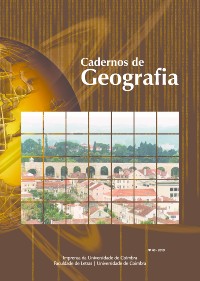Please use this identifier to cite or link to this item:
https://hdl.handle.net/10316.2/47865| DC Field | Value | Language |
|---|---|---|
| dc.contributor.author | Lima, Thaís Bezerril Brandão de | - |
| dc.contributor.author | Silva, Márcia Regina Farias da | - |
| dc.contributor.author | Carvalho, Rodrigo Guimarães de | - |
| dc.contributor.author | Rocha, Fernanda Rízia Fernandes | - |
| dc.date.accessioned | 2020-01-23T14:27:49Z | |
| dc.date.accessioned | 2020-09-22T12:43:45Z | - |
| dc.date.available | 2020-01-23T14:27:49Z | |
| dc.date.available | 2020-09-22T12:43:45Z | - |
| dc.date.issued | 2019 | - |
| dc.identifier.issn | 0871-1623 | - |
| dc.identifier.issn | 2183-4016 (PDF) | - |
| dc.identifier.uri | https://hdl.handle.net/10316.2/47865 | - |
| dc.description.abstract | pesca artesanal é caracterizada por envolver diversas organizações familiares e comerciais, sendo uma atividade exclusivamente manual do pescador que é transmitida por seus ascendentes, por representantes mais idosos da comunidade ou pelos companheiros de trabalho. O objetivo principal desta pesquisa foi estudar o papel da colônia de pescadores e a percepção ambiental de marisqueiras e pescadores artesanais do município de Canguaretama, estado do Rio Grande do Norte, Brasil. Foram identificados 420 pescadores ativos cadastrados na colônia. Como procedimento metodológico foi utilizado um roteiro de entrevistas e questionários semiestruturados a 71 pescadores, 47% deles compreendidos na faixa etária entre 51 e 61 anos e 76.1% com baixo nível de escolaridade. Foi verificado que a renda da maioria era de um ou inferior a um salário mínimo, 31% tinha na pesca a sua única fonte de renda, 61% dos participantes da pesquisa nasceram na própria comunidade, 59.2% tinham mais de 29 anos de profissão. Para 96% o ecossistema de manguezal é considerado o seu principal meio de sobrevivência, 78% atribuíram à atividade da carcinicultura, o declínio da pesqueira artesanal na região e as alterações da paisagem local. Todos os entrevistados se preocupavam com a preservação e conservação do ecossistema local, 32% afirmaram que não desmatam o ecossistema e 24% fiscalizam e denunciam abusos na floresta de manguezal. Conclui-se, portanto, que a pesca artesanal não cumpre mais a função de subsistência do pescador, levando-o a procurar outras alternativas que possam complementar a renda que obtém com esta atividade. | por |
| dc.description.abstract | Artisanal fishing is characterized by involving several family and commercial organizations, being an exclusively manual activity of the local fisherman that is transmitted by his ascendants, by older representatives of the community or by the companions of Work. The main objective of this research is to scientifically verify the role of the fishermen’s colony and the environmental perception of artisanal seafood and fishers in the municipality of Canguaretama, state of Rio Grande do Norte, Brazil. Forty hundred twenty active fishermen properly registered in the colony were identified. As a methodological procedure, a script of structured interviews and semi-structured questionnaires was used to 71 fishermen, 47% of them aged 51 and 61 years and 76.1% with low level of education. It was carefully verified that the income of the majority was one or less than a minimum wage, 31% traditionally had in local fishing their only source of earnings; 61% of the survey participants were born in the community itself, 59.2% have more than 29 years of the profession. For 96% the mangrove system is considered its main means of survival; 78% attributed the activity of carciniculture, the gradual decline of artisanal fishing in the region and profound changes in the local landscape. All interviewees were concerned about the preservation and conservation of the local ecosystem, 32% said they did not deforest the ecosystem and 24% supervise and report abuse in the mangrove forest. It is concluded, therefore, that artisanal fishing no longer fulfills the worker of subsistence of the fisherman, leading him to look for other alternatives that can complement the income he obtains with this activity. | eng |
| dc.language.iso | por | - |
| dc.publisher | Imprensa da Universidade de Coimbra | - |
| dc.rights | open access | - |
| dc.subject | artisanal sea fishing | eng |
| dc.subject | environmental education and conservation | eng |
| dc.subject | natural resources | eng |
| dc.subject | seafood fisherwoman | eng |
| dc.subject | pesca marítima artesanal | por |
| dc.subject | educação e conservação ambiental | por |
| dc.subject | recursos naturais | por |
| dc.subject | marisqueiras | por |
| dc.title | Caracterização socioeconômica e percepção ambiental dos pescadores artesanais do município de Canguaretama, Rio Grande do Norte – Brasil | por |
| dc.title.alternative | Socioeconomic characterization and environmental perception of artisanal fishermen in the municipality of Canguaretama, Rio Grande do Norte- Brazil | por |
| dc.type | article | - |
| uc.publication.collection | Cadernos de Geografia nº 40 | - |
| uc.publication.firstPage | 67 | - |
| uc.publication.issue | 40 | - |
| uc.publication.lastPage | 78 | - |
| uc.publication.location | Coimbra | - |
| uc.publication.journalTitle | Cadernos de Geografia | - |
| dc.identifier.doi | 10.14195/0871-1623_40_5 | - |
| uc.publication.section | Artigos | - |
| uc.publication.orderno | 5 | - |
| uc.publication.area | Artes e Humanidades | - |
| uc.publication.manifest | https://dl.uc.pt/json/iiif/10316.2/47865/233585/manifest?manifest=/json/iiif/10316.2/47865/233585/manifest | - |
| uc.publication.thumbnail | https://dl.uc.pt/retrieve/11481261 | - |
| item.grantfulltext | open | - |
| item.fulltext | With Fulltext | - |
| Appears in Collections: | Cadernos de Geografia | |
Files in This Item:
| File | Description | Size | Format | |
|---|---|---|---|---|
| caracterizacao_socioeconomica_e_percepcao_ambiental.pdf | 4.54 MB | Adobe PDF |  |
Items in DSpace are protected by copyright, with all rights reserved, unless otherwise indicated.
